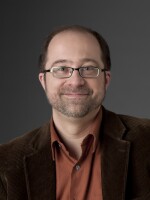AUDIE CORNISH, HOST:
America's police have been experiencing a crisis of public confidence in many places. Now, after six months of protest and controversy, experts are stepping in. The president's Task Force on 21st Century Policing began its work today with a public hearing in Washington. NPR's Martin Kaste reports.
MARTIN KASTE, BYLINE: Yes, it's a task force. And in Washington, that's often what you call the place where good intentions go to die. But Laurie Robinson has reason to believe this task force will be different.
LAURIE ROBINSON: The president has asked us to come up with concrete proposals on a very short timeline - by March 2.
KASTE: Robinson is a law professor and a former assistant attorney general. Now she's co-chairing President Obama's policing task force.
ROBINSON: He's made it clear that he doesn't want kind of general philosophizing. He wants very pragmatic suggestions.
KASTE: There was some philosophizing at today's meeting, but there were also some concrete ideas. For instance, maybe police departments should use data from body cameras to check for patterns of racial bias in police stops. Or maybe they should punish officers who curse and insult people in the streets. But here's the question. How does a task force implement these ideas given how decentralized policing is in America? It's a problem that Laurie Robinson acknowledged before the meeting started.
ROBINSON: It's a very good question. There are between 17,000 and 18,000 local police departments in this country, and they're locally controlled.
KASTE: She hopes the government can encourage police departments to adopt the recommendations, maybe by tying them to federal grants. And she points to the example of the last time there was a presidential blue ribbon panel on policing - President Johnson's Commission on Law Enforcement and Administration of Justice, which delivered its report back in 1967. It gets respect from people who study the history of police in America, people such as Professor Sam Walker. He says people should remember that the police acted very differently back then.
SAM WALKER: A police officer could shoot to kill any person that officer suspected - suspected -of being a fleeing felon.
KASTE: He says the pressure to reform the police came from many quarters in the '60s, but LBJ's commission helped to focus things.
WALKER: It made a number of specific recommendations, a number of which fell by the wayside. But some others have had very, very clear, very strong impact. And they charted a clear direction for improving the police.
KASTE: For instance, departments started to write clear policies for when cops could pull the trigger. Today, President Obama's task force is more focused on building trust between police and the community. For that to work, the task force can't afford to alienate the police. And so far, the police do seem to be on board. They like the fact that the co-chair is Philadelphia Police Commissioner Charles Ramsey. He is widely considered to be a cop's cop. Eugene O'Donnell is a former New York policeman who now teaches at the John Jay College. He's glad that the task force doesn't include any real radicals, as he puts it.
O'DONNELL: The last thing you need is people who pander. And you will not get that, I don't think, with Chief Ramsey and the other people there. There may be some fights. There may be some internal disagreements, but the last thing you need is for people to tell the public that the police work is something other than what it is.
KASTE: And what policing is, he says, is adversarial. He also sees a cautionary tale in the history of another commission ordered by President Johnson. It was set up to investigate the causes of the 1967 race riots.
O'DONNELL: The Kerner Commission, probably our most famous criminal Justice commission, warned us that we were on the way to something that we're clearly way, way past getting to, where many minorities and indeed many white young kids have no pathway to the middle class at this point.
KASTE: O'Donnell worries that the president's policing task force will allow politicians to ignore the harder problems, the social and economic problems which he thinks contributed to this summer's outburst of anger at the police. Martin Kaste, NPR News. Transcript provided by NPR, Copyright NPR.






